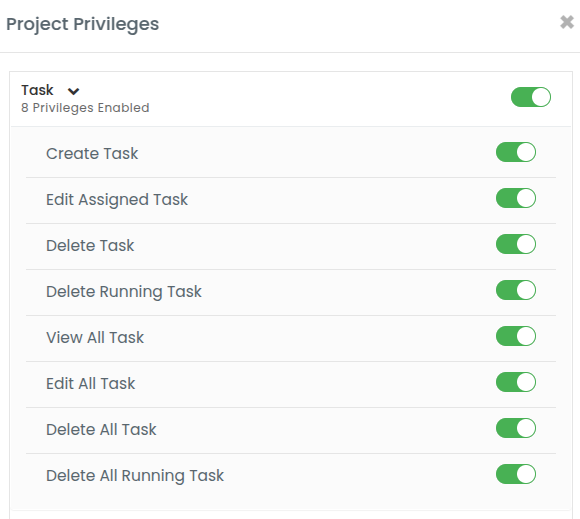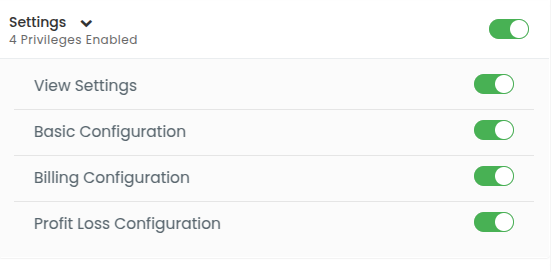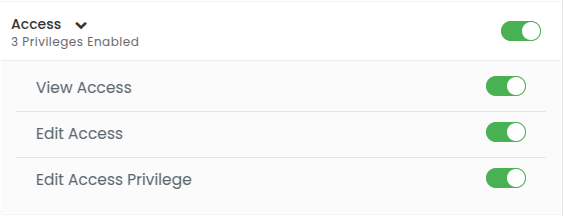Project Privileges in Desklog define what actions a user can perform within a project. There are five core types of project privileges:
- Task
- Settings
- Overview
- Access
- Note
Each category includes specific permissions that help control user roles and responsibilities more precisely.

1. Task Permissions
These permissions manage user actions related to project tasks. There are 8 task-level permissions:
- Create Task
Allows the user to create new tasks within the project. - Edit Assigned Task
Grants the ability to edit tasks that are specifically assigned to the user. - Delete Task
Lets the user delete individual tasks they are responsible for. - Delete Running Task
Permits deleting tasks that are currently in progress. - View All Tasks
Enables visibility of all tasks in the project, not just those assigned to the user. - Edit All Tasks
Allows the user to edit any task in the project, regardless of assignment. - Delete All Tasks
Grants permission to delete any task in the project. - Delete All Running Tasks
Enables the user to remove all tasks currently marked as “running.”

2. Settings Permissions
These permissions control access to various configuration settings within the project:
- View Settings
Allows the user to view the existing project settings. - Basic Configuration
Grants access to adjust fundamental settings like task types, priorities, or workflow settings. - Billing Configuration
Enables the user to configure billing-related aspects, such as rates and invoicing settings. - Profit & Loss Configuration
Lets the user manage financial configurations tied to project profitability and cost analysis.

3. Overview Permissions
- View Overview
This permission enables the user to access the project dashboard and high-level summary of project progress, performance, and key metrics.

4. Access Permissions
These permissions define who can manage user access to the project:
- View Access
Allows viewing of the access list, showing who has what permissions. - Edit Access
Grants the ability to modify user access levels or roles. - Edit Access Privilege
Enables managing privilege types for different users, such as changing someone’s role from “viewer” to “editor.”

5. Note Permissions
These control user ability to interact with project-related notes:
- View Note
Allows the user to read notes added by others in the project. - Edit Note
Grants the user the ability to add or modify notes related to tasks or project discussions.

These privilege settings ensure that each team member only has access to the tools and information they need, improving both security and project efficiency.